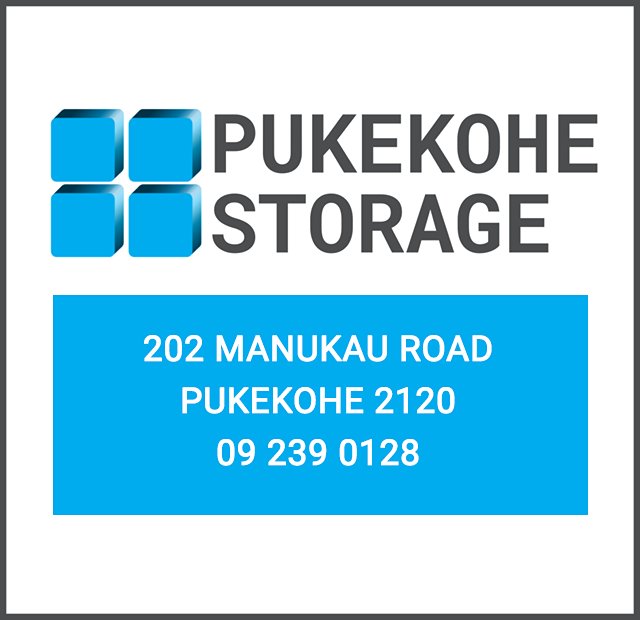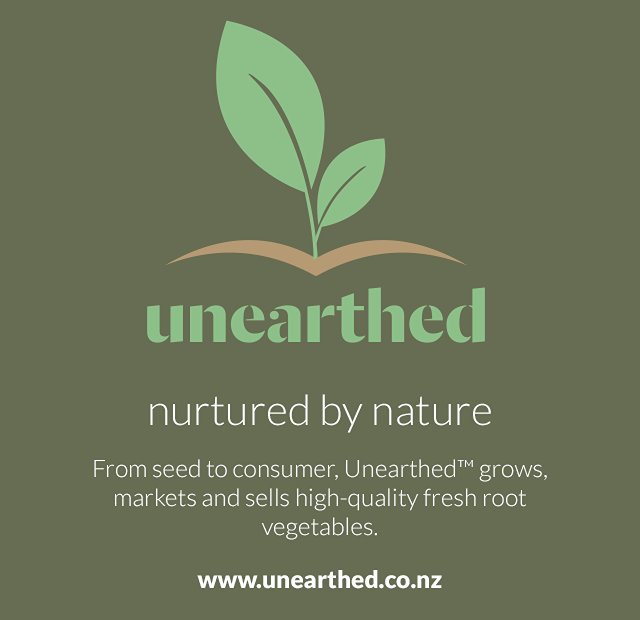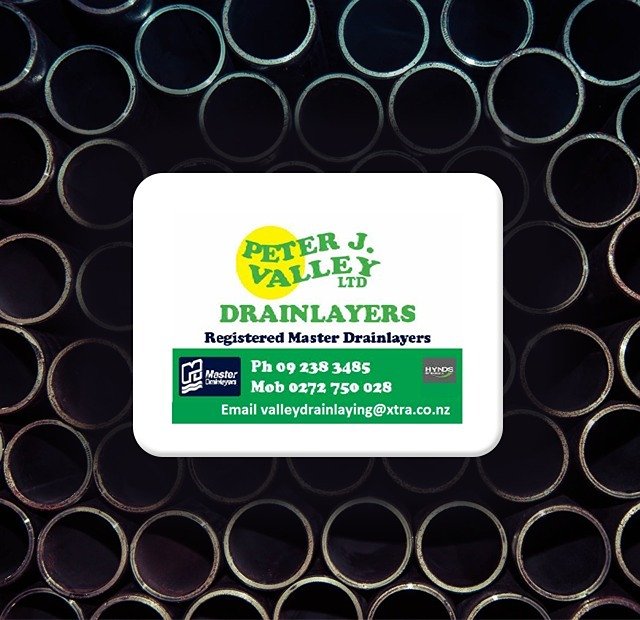

All Year 9 students work towards gaining their

“The world is not a playground; it is a schoolroom. Life is not a holiday but an education. And the one eternal lesson for us all is how better we can love.”
Henry Drummon, Scottish Evangelist 1851-1897
At KingsGate, we know that every student is capable of learning and achieving success. We expect our students to give their best, the first time, every time. This conviction means they honour God with the first fruits of their talents and skills but also honour themselves and those that support them. Therefore, we place a significant focus on presenting a knowledge-rich curriculum so they can meet the demands of an ever-changing and challenging working environment in their future lives. To this end, we offer a range of learning opportunities designed to develop every student's talents, interests and career pathways.
Our students' long-term academic goal is navigating NCEA levels one, two and three. To reach this goal, students need to be familiar with what it means to be at secondary school, starting the first day they begin Year 9. All Year 9 students work towards a “Foundation Certificate of Achievement”. The Year 9 Certificate is designed to encourage students to do their best work and maintain a positive focus on their learning while working at a level that is intended to be challenging but attainable. Because the learning is at a level appropriate to the capability of the student, every student who puts in a decent effort is capable of gaining the Year 9 Foundation Certificate of Achievement. Certificates are awarded at the end of the year.
Students can achieve credits contributing to the Year 9 Certificate each term in every timetabled subject. To achieve the Certificate, students must achieve 65% of the credits available, maintain a 90% attendance (unless unable to for medical reasons) and a grade point average of at least 50. Credits are awarded for capabilities pertaining to curriculum tasks related to each Year 9’s learning, i.e. knowledge and skill, and generic capabilities, i.e. the New Zealand Curriculum’s five key competencies. In addition, students can earn an extra ten credits each term by demonstrating our school values, wearing our uniform with pride and involvement in co-curricular activities. Students can achieve the Certificate with a Merit Endorsement by earning a grade point average of 80 - 89 or an Excellence Endorsement by earning a grade point average of 90 to 100.
As a natural progression from primary school, Year 9 students begin to adapt to being taught by more than one teacher throughout their day. Multiple teachers ultimately lead to subject specialisation, as Years 11 through 13 require. Therefore, our Year 9’s will encounter various teachers in various subjects over the year as continuous preparation for Years 11 through 13.
In Year 9, Numeracy and English Literacy are siloed subjects, meaning that when they are timetabled, they’re taught in their pure forms without other subjects being integrated into their delivery. Teachers are given the opportunity to integrate achievement objectives in all other subjects, but only when they complement each other in topic content. At no stage are curriculum subjects ever forced together within topics, particularly if there is no interdisciplinary cohesion between them. This is reflected in the timetable, which states which subjects must be taught siloed from others and which may be taught siloed but are also suitable for complimentary integration of multiple subject achievement objectives.
KingsGate School’s goal is not just to be known as one that raises our students' academic proficiencies but also one where sports mastery is valued. Year 9 students are provided time for sports specialisation within the timetable to become more knowledgeable about the sport that is the focus of their study and consequently become more competitive and skilled participants.
As you read through this document, as either caregiver or student, we trust that you will agree that the curriculum presented is engaging, challenging and rewarding, offering a wide range of experiences and learning opportunities and one that we want you to be part of.
“Don’t just delegate tasks to the next generation. If you delegate tasks, you create followers. Instead, delegate authority to create leaders”
Craig Groeschel

Our 2023 Year 9 cohort will be our future secondary school leaders. Not only will they be traversing and designing pathways that set the standard for student leadership in generations to come, but they will define and bring to life the school’s vision of being “inspired to excellence” within our secondary school context.
Our Year 9 students will have rare and unique opportunities to explore and fulfil their leadership potential with our future Year 13 Head Boy and Head Girl, almost certainly already within our Year 9 cohort. As Christians and the leaders of our school, our Year 9s will carry the responsibility of representing Christ in the way they lead, not just for their own sake but for the sake of those around them, as they will possess the ability to influence the way other students think about Jesus based on their own actions and behaviour. Learning to Lead will be a central theme throughout all Year 9 learning, with its foundations firmly set in the Health and PE Curriculum.
“Being a Christian is more than just an instantaneous conversion - it is a daily process whereby you grow to be more and more like Christ.”
Billy Graham

Our Year 9 will be provided opportunities to engage with the Scriptures in ways they find rewarding. They will encounter God through the study of the Bible, coming to know better and understand the grand story of Scripture and, most importantly, how they can become part of it. We want them to experience the love of the Father, be inspired to become authentic followers of Christ, and be motivated to live lives responsive to the leading of the Holy Spirit as they grow in faith, hope, and love and participate in God’s mission for the world.
We must continue to prepare our students for a world beyond school; therefore, our Christian worldview will continue to infuse teaching and learning in all curriculum subjects as students progress through our secondary school. Indeed students must be given time, guidance and experiences that allow them to be mature as young disciples and to become more confident in who they have been called to be as servants of Christ. Our Year 9’s will dwell, reflect, and act upon this challenge in their twice-weekly Christian Formation sessions.
“English and Maths are subjects that contain basic, underlying principles that play out in the real world.” From Inspired Education
To ensure that students have access to all subjects within the New Zealand Curriculum, students must be skilled in Numeracy and Literacy. With said mastery comes the subsequent ability to fully explore and enjoy the width and breadth of subjects the New Zealand Curriculum has to offer. The significance of skill and knowledge acquisition in Maths and Literacy in Years 9 and 10 cannot be understated as they provide the foundation for NCEA Level 1 achievement and beyond. It is precisely why the independent or siloed teaching of these subjects is emphasised in the first instance and then as integrated subjects in the second.

Year 9 students will develop the skills needed to understand, use, and create oral, visual, and written texts. Through diverse contexts, students will engage with and develop the key skills and competencies of the New Zealand Curriculum. They will become increasingly skilled and sophisticated speakers, listeners, writers, readers, presenters, and viewers and, in doing so, will gain a better understanding of language, literature, and the world around them.
An introductory unit about our heritage and each student's family journey to KingsGate is taught. Students will also undertake a range of activities in the classroom, including a ‘passion project’, where they are encouraged to consider others’ ideas while forming and expressing their own.
Reading is a particular focus in Year 9, with regular visits to the library. Reading independently chosen books has been proven to broaden a student’s understanding of the world around them and form a solid basis for academic success.

Year 9 Mathematics course is based on level 4 of the New Zealand Curriculum, but instruction is also extended upward into levels 5 and 6 if appropriate. For students who have gaps in their learning, time is taken to ensure that any deficiencies in knowledge are rectified. Particular emphasis is given to Number and Algebra; however, geometry, probability, pattern, graphs, statistics, and measurement are also focused upon per the school’s biennial curriculum plan. By the end of Year 9, all students have a good grasp of the fundamentals and are well prepared for future study in Mathematics.
Although considered a siloed subject, once students have mastery of the mathematical knowledge required in Year 9, they will naturally integrate their conceptual understanding of mathematics within the practical functioning of their local community. Ultimately, students will gain deeper content knowledge and a deeper appreciation for the role math plays in society.
Every subject requires knowledge of other subjects. Social studies and history rely heavily on English as both textbooks and historical documents require that background knowledge.”
From “What is an Integrated Curriculum”
Integrated subjects are those that do away with the borders drawn around them. Instead, they unify concepts and holistic learning to connect diverse areas of study. Learning this way makes critical connections for students and cuts across subject matter to emphasise key concepts. Students aim to accomplish a greater level of critical thinking and understanding because the topics, when taught together, are mutually reemphasised.
It is important to communicate that at no stage within the Year 9 curriculum are subjects forced together in the timetable where there is no mutual benefit between them. Instead, teachers are given the option to teach all non-Gateway Subjects as siloed or integrated depending on the content, experience and curriculum coverage they want to provide their students. The complementary integration of subjects allows teachers to discern professionally what teaching and learning methods will best suit the learning framework designed for the students to achieve their required learning objectives.
“True greatness, true leadership, is found in giving yourself in service to others, not in coaxing or inducing others to serve you.”
Oswald Sanders

Service-learning is an integrated inquiry model that Year 9’s will become familiar with as they cover the breadth of the New Zealand Curriculum. Its use as an inquiry model for learning aligns perfectly with our school’s values. It offers our Year 9 students an inquiry model that provides integrity for both their academic and Christian character development. Service-learning elicits a multi-dimensional change in students, including a positive impact on overall academic achievement, development as a productive community member, the formation of beliefs and values, growth in leadership competencies and personal development and a lasting commitment to serving others.
Christ is our model in all things, and through service-learning that nurtures our students' development of Christ-likeness, they will serve as HE served. Service-learning is a way of teaching that connects learning with service opportunities. It is unique in that students engage in activities that address human and community needs with structured opportunities intentionally designed to promote student learning and development. Through service-learning, our Year 9 students are challenged to move beyond “book learning” and apply their learning to real-world challenges and needs through serving others. The possibilities for service-learning are limited only by the creativity of the students, teachers and community partners involved.
“Just as an automobile gives us some insight into the engineers, assemblers, and mechanics, science from a biblical perspective gives us insight into the Creator. “
The Sciences allow students to explore the processes and structures of God’s good Creation, many of which have been marred or misused by fallen humanity. The Sciences are the dynamic human endeavours through which people seek to observe, investigate, and understand the world and manage and develop it responsibly. Using the process of scientific inquiry, students attempt to understand, describe, and explain the design of God’s creation with its order, diversity, complexity, and beauty and apply that knowledge to manage and develop said world, responding to Christ’s redemptive work. Through the study of Science, students will recognise their place in God’s creation and redemptive work, thereby adding responsibility and meaning to their own lives
Lessons Per Week: 2
Teacher to be confirmed

General Science is a compulsory subject. In Year 9, General Science involves generating and testing ideas, gathering evidence, and communicating ideas to develop scientific knowledge, understanding and explanations. It begins with an introduction to the equipment and methods of Science and follows the learning strands of Living World, Material World, Physical World, and Planet Earth and Beyond.
The Living World focuses on the interrelationship of living things in communities, the biology of life at the level of cells, and the way living things reproduce, the Material World is studied through the theme of interactions, including atoms, molecules, the periodic table, mixtures and compounds, and the reactions of substances while the Physical World is considered through the role of energy as an overarching theme. Finally, the study of Planet Earth and Beyond focuses on various facets of astronomy.
One subject per term
One lesson per week.

In Textiles Technology, our Year 9 students will be inspired by a project-based course that contains a practical component where they will learn to think critically and creatively. In Textiles Technology, Year 9 students will design a creative textile outcome that addresses a brief. They will learn to use a range of tools and machines and work with fabric in creative ways. They will apply the knowledge and skills they have learned to produce a decorative item they personally designed. Students will also begin to understand the different properties of fabric, develop safe working practices in a workshop environment, learn basic sewing skills and develop confidence by sewing basic garments before exploring more advanced creative techniques.
 In Materials Technology/Design and Visual Communication, our Year 9s will be inspired through project-based learning. Material Technologies contains a practical component and encourages students to have more significant input into their own learning. Some written work and basic presentation work are also covered as well as various forms of modelling. The programme will enable our Year 9 students to investigate a problem and formulate designs that reflect an actual need. They will learn to use various tools and machines, and materials, including metal, plastic and wood, and develop personal learning and organisational skills. Students will use a shortened design process to develop and make a practical project.
In Materials Technology/Design and Visual Communication, our Year 9s will be inspired through project-based learning. Material Technologies contains a practical component and encourages students to have more significant input into their own learning. Some written work and basic presentation work are also covered as well as various forms of modelling. The programme will enable our Year 9 students to investigate a problem and formulate designs that reflect an actual need. They will learn to use various tools and machines, and materials, including metal, plastic and wood, and develop personal learning and organisational skills. Students will use a shortened design process to develop and make a practical project.
“The humanities tell us what we MAY do or even what we MUST do. In a biblical worldview, they are of necessity twin sides of the same academic coin.” Gene C Fant PHD
The Humanities are structured ways of exploring, analysing and understanding the characteristics, interdependence and wonder of God’s Creation. Studying Humanities gives students knowledge and skills that will help them make wise and sustainable business, environmental, civic, political and lifestyle choices. Studying the Humanities reveals how humans have struggled to live within God’s grand narrative of Creation, Fall, Redemption and Reconciliation while fulfilling their God-given responsibility for stewardship over God’s creation within personal, community and global contexts.
Three Lessons Per Week
Teacher to be confirmed
Pathways: Year 10 Social Science
 Social studies focus on how societies work and how people can participate as critical, active, informed, and responsible citizens. Contexts are drawn from the past, present and future, and places within and beyond New Zealand. Students will be given the opportunity to collaborate, inquire and be creative in their thinking. Throughout the year, emphasis will be placed on developing the skills students will need when taking Social Science subjects at the NCEA level. These include paragraph writing skills, information literacy strategies for effective research, comprehension, inquiry, group work, critical thinking, social decision-making, understanding different perspectives, mapping, and graphing skills. Examining current events and issues is an integral part of the course.
Social studies focus on how societies work and how people can participate as critical, active, informed, and responsible citizens. Contexts are drawn from the past, present and future, and places within and beyond New Zealand. Students will be given the opportunity to collaborate, inquire and be creative in their thinking. Throughout the year, emphasis will be placed on developing the skills students will need when taking Social Science subjects at the NCEA level. These include paragraph writing skills, information literacy strategies for effective research, comprehension, inquiry, group work, critical thinking, social decision-making, understanding different perspectives, mapping, and graphing skills. Examining current events and issues is an integral part of the course.
 This course is designed to introduce students to Geography by having them study a broad range of local, national and global topics. The course encourages students to think critically about the world in which they live and to understand their responsibility in relation to other people, the environment, and the planet's long-term sustainability. From this course, students will understand physical geography, that is, studying aspects of the natural world with a selection of landscape studies. The focus will also fall on human geography, which examines the relationship between people and the environment using international, national, and local examples. Students will learn to apply various geographic skills and ideas, including map interpretation, Google Earth investigations, and Geographic Information Systems (GIS) analysis.
This course is designed to introduce students to Geography by having them study a broad range of local, national and global topics. The course encourages students to think critically about the world in which they live and to understand their responsibility in relation to other people, the environment, and the planet's long-term sustainability. From this course, students will understand physical geography, that is, studying aspects of the natural world with a selection of landscape studies. The focus will also fall on human geography, which examines the relationship between people and the environment using international, national, and local examples. Students will learn to apply various geographic skills and ideas, including map interpretation, Google Earth investigations, and Geographic Information Systems (GIS) analysis.
Three Lessons Per Week
Teacher to be confirmed
Pathways: Year 10 Physical Education & Health
 Physical Education and Health are about the students. The focus is on their well-being (Hauora), how they learn to move, how they develop relationships in teams and groups, and how different aspects of society influence physical activity and health. Health and PE foster critical thinking and action and enable students to understand the role and significance of physical activity for individuals and society. Key concepts. Developing a balanced lifestyle is an essential aspect of a student’s education. Interpersonal and practical skills can become lifelong and provide excellent building blocks for future years. Students will become more confident in their abilities and have confidence in trying new activities. They will also understand the links between physical activity and well-being developed in and through physical activity.
Physical Education and Health are about the students. The focus is on their well-being (Hauora), how they learn to move, how they develop relationships in teams and groups, and how different aspects of society influence physical activity and health. Health and PE foster critical thinking and action and enable students to understand the role and significance of physical activity for individuals and society. Key concepts. Developing a balanced lifestyle is an essential aspect of a student’s education. Interpersonal and practical skills can become lifelong and provide excellent building blocks for future years. Students will become more confident in their abilities and have confidence in trying new activities. They will also understand the links between physical activity and well-being developed in and through physical activity.
 As humans, we are part of the environment. With over 7.5 billion of us on Earth, our combined actions also significantly impact the environment. As long as we are aware of the impact, we can do things as individuals and work together as groups to lessen the detrimental impact on billions of people. In Environmental Studies, students explore how humans can make a constructive impact on the earth. They develop problem-solving, critical thinking, and communication skills and bring a creative, multidisciplinary approach to their work. Students will explore human behaviour, resources and issues such as globalisation, development and sustainability and examine them with a greater focus on the science of the earth’s surface and its forces. Students will explore critical topics like air quality, water quality, the effects of climate change, and many others to make informed decisions about caring for our planet.
As humans, we are part of the environment. With over 7.5 billion of us on Earth, our combined actions also significantly impact the environment. As long as we are aware of the impact, we can do things as individuals and work together as groups to lessen the detrimental impact on billions of people. In Environmental Studies, students explore how humans can make a constructive impact on the earth. They develop problem-solving, critical thinking, and communication skills and bring a creative, multidisciplinary approach to their work. Students will explore human behaviour, resources and issues such as globalisation, development and sustainability and examine them with a greater focus on the science of the earth’s surface and its forces. Students will explore critical topics like air quality, water quality, the effects of climate change, and many others to make informed decisions about caring for our planet.
One Subject Per Term
Two Lessons Per Week
 Year 9 provides students with various drama experiences and encourages them to explore their creativity by selecting and refining ideas to achieve performance goals. Students experiment with the use of drama techniques of voice, body, movement, and space in both scripted and devised drama. Students will be introduced to drama elements, conventions, and technologies and learn how these aspects combine to convey meaning. They work individually and collectively in their analysis and creation of drama, supporting each other’s learning with peer feedback and feed-forward.
Year 9 provides students with various drama experiences and encourages them to explore their creativity by selecting and refining ideas to achieve performance goals. Students experiment with the use of drama techniques of voice, body, movement, and space in both scripted and devised drama. Students will be introduced to drama elements, conventions, and technologies and learn how these aspects combine to convey meaning. They work individually and collectively in their analysis and creation of drama, supporting each other’s learning with peer feedback and feed-forward.
 Visual Arts in Years 9 and 10 provides students with the essential skills needed to continue with this subject in the senior school. It also gives students an understanding of art and how and why it is made. Students produce work within a range of disciplines, including Sculpture, Painting, Printmaking, Photography and Design. In addition to these practical activities, students learn about art's purpose and its role in our lives and the communities we live in. Students also learn about a range of artist models and are taught how to analyse artists’ works and apply their own ideas and approaches to their artwork. Visual Art gives students the ability to understand the world around them in a visual context. They develop the skills required to continue with confidence in all the art subjects at every level. It also provides the personal satisfaction and enjoyment that comes from making art.
Visual Arts in Years 9 and 10 provides students with the essential skills needed to continue with this subject in the senior school. It also gives students an understanding of art and how and why it is made. Students produce work within a range of disciplines, including Sculpture, Painting, Printmaking, Photography and Design. In addition to these practical activities, students learn about art's purpose and its role in our lives and the communities we live in. Students also learn about a range of artist models and are taught how to analyse artists’ works and apply their own ideas and approaches to their artwork. Visual Art gives students the ability to understand the world around them in a visual context. They develop the skills required to continue with confidence in all the art subjects at every level. It also provides the personal satisfaction and enjoyment that comes from making art.
 Dance aims to introduce, through a variety of topics and styles, skills that students need to both perform and choreograph dance. Dance terminology will be incorporated into each topic and supports each new skill as it is learned. In Year 9, Dance students will use their creativity to enhance their passion for dance whilst learning practical skills. Dance develops self-management and interpersonal skills and builds confidence. This programme is suitable for those who are studying dance as an extra-curricular activity as they have the opportunity to build on their knowledge and learn new styles
Dance aims to introduce, through a variety of topics and styles, skills that students need to both perform and choreograph dance. Dance terminology will be incorporated into each topic and supports each new skill as it is learned. In Year 9, Dance students will use their creativity to enhance their passion for dance whilst learning practical skills. Dance develops self-management and interpersonal skills and builds confidence. This programme is suitable for those who are studying dance as an extra-curricular activity as they have the opportunity to build on their knowledge and learn new styles
 Year 9 Music covers a general introduction to instrument learning, music literacy, and music appreciation. The students are encouraged to explore and appreciate a range of different styles of music. Course coverage will include singing, focusing on developing strong communal singing for assembly and recreational singing. The programme will also increase the students' general musical knowledge, visiting such topics as the nature of sound and the ways it is generated. Terms such as pitch, dynamics and timbre are also explored. Different genres of music are investigated, such as programme music, music in movies, modern music and orchestra instruments. Students with limited or no musical experience will develop their skills in this area.
Year 9 Music covers a general introduction to instrument learning, music literacy, and music appreciation. The students are encouraged to explore and appreciate a range of different styles of music. Course coverage will include singing, focusing on developing strong communal singing for assembly and recreational singing. The programme will also increase the students' general musical knowledge, visiting such topics as the nature of sound and the ways it is generated. Terms such as pitch, dynamics and timbre are also explored. Different genres of music are investigated, such as programme music, music in movies, modern music and orchestra instruments. Students with limited or no musical experience will develop their skills in this area.
One Language Per Term
One Lesson Per Week
 It is essential that, as New Zealanders, students learn about the language and culture of the Māori people. This programme will focus on both Tikanga (culture) and Te Reo Māori (the Māori language). Students will learn to communicate in both oral and written Māori about themselves and their whānau (family). There will be an opportunity to learn about some customs and when they occur. This course will expose students to the history of Aotearoa and one of the country’s official languages.
It is essential that, as New Zealanders, students learn about the language and culture of the Māori people. This programme will focus on both Tikanga (culture) and Te Reo Māori (the Māori language). Students will learn to communicate in both oral and written Māori about themselves and their whānau (family). There will be an opportunity to learn about some customs and when they occur. This course will expose students to the history of Aotearoa and one of the country’s official languages.
 This course is designed for beginners and introduces students to the basics of the German language and how it works. Students will learn to speak on an elementary level about topics of personal interest such as themselves, their family, pets, school life and hobbies. Students will be encouraged in oral skills, as well as reading, writing and listening skills. Cultural aspects and traditions will also be incorporated into the course to encourage comparisons between life in New Zealand and German-speaking countries.
This course is designed for beginners and introduces students to the basics of the German language and how it works. Students will learn to speak on an elementary level about topics of personal interest such as themselves, their family, pets, school life and hobbies. Students will be encouraged in oral skills, as well as reading, writing and listening skills. Cultural aspects and traditions will also be incorporated into the course to encourage comparisons between life in New Zealand and German-speaking countries.
 This programme introduces students to the language. Emphasis is placed on verbal communication, but the basics of Spanish grammar and writing skills are also covered. Learning a foreign language involves learning about the cultural aspects and traditions of the country where the language is spoken. The cultures, geography, & customs of Spanish-speaking countries will be incorporated into the course to encourage comparisons. Students will learn to talk about topics of personal interest such as themselves, their family, pets and school.
This programme introduces students to the language. Emphasis is placed on verbal communication, but the basics of Spanish grammar and writing skills are also covered. Learning a foreign language involves learning about the cultural aspects and traditions of the country where the language is spoken. The cultures, geography, & customs of Spanish-speaking countries will be incorporated into the course to encourage comparisons. Students will learn to talk about topics of personal interest such as themselves, their family, pets and school.
 This course introduces students to the French language. In Year 9, emphasis is placed on verbal communication, but the basics of French grammar and writing skills are also introduced. Learning will also embrace an awareness of the country's geography and customs. The aim is to be able to understand and be understood in basic French. Topics studied include getting acquainted, food, the classroom, telling the time and descriptions of self, family and home.
This course introduces students to the French language. In Year 9, emphasis is placed on verbal communication, but the basics of French grammar and writing skills are also introduced. Learning will also embrace an awareness of the country's geography and customs. The aim is to be able to understand and be understood in basic French. Topics studied include getting acquainted, food, the classroom, telling the time and descriptions of self, family and home.
“If we are to improve the future, we must disturb the present.” Catherine Booth
Two Lessons Per Week
Teacher to be confirmed
 Genius Time is an approach to learning where students are guided by their own interests, background knowledge, and curiosity to learn. From the outside looking in, it is less organised, less formal, and less standardised than traditional learning. Genius Hour is truly ‘open-ended’ learning characterised by student self-direction, passion-based learning, inquiry, and autonomy. It allows (actually, it requires) students to explore their own ideas and follow their own instincts in learning for the sake of learning, creating for the sake of creating and doing for the sake of doing. An underlying assumption of genius hour is that if students are given space, tools, and time, they will create something personal and compelling and, of course, be ‘learning’ in the process.
Genius Time is an approach to learning where students are guided by their own interests, background knowledge, and curiosity to learn. From the outside looking in, it is less organised, less formal, and less standardised than traditional learning. Genius Hour is truly ‘open-ended’ learning characterised by student self-direction, passion-based learning, inquiry, and autonomy. It allows (actually, it requires) students to explore their own ideas and follow their own instincts in learning for the sake of learning, creating for the sake of creating and doing for the sake of doing. An underlying assumption of genius hour is that if students are given space, tools, and time, they will create something personal and compelling and, of course, be ‘learning’ in the process.
Two Lessons Per Week
Teacher to be confirmed
 One of our goals at KingsGate is to nurture and develop great sportsmen and sportswomen. This is why we believe it is vital that starting from Year 9, our students are exposed to several sports and provided the opportunity to receive specialised instruction. There are inherent benefits to doing this.. Early specialisation in sports can foster behaviours such as punctuality, cohesiveness, hierarchy, knowledge, and greater acute skill development, all of which can help an individual to conform to the standards expected of competitive and representative sports quicker. In turn, this can lead to individuals having increased opportunities to be selected for representative honours as coaches already understand that the player is already aware of the cultural norms and behaviours required of the sport.
One of our goals at KingsGate is to nurture and develop great sportsmen and sportswomen. This is why we believe it is vital that starting from Year 9, our students are exposed to several sports and provided the opportunity to receive specialised instruction. There are inherent benefits to doing this.. Early specialisation in sports can foster behaviours such as punctuality, cohesiveness, hierarchy, knowledge, and greater acute skill development, all of which can help an individual to conform to the standards expected of competitive and representative sports quicker. In turn, this can lead to individuals having increased opportunities to be selected for representative honours as coaches already understand that the player is already aware of the cultural norms and behaviours required of the sport.

Parents, please support our local businesses













Call Direct
Send Email
Visit Website

Call Direct
Send Email
Visit Website

Call Direct
Send Email
Visit Website

Call Direct
Send Email
Visit Website

Call Direct
Send Email
Visit Website

Call Direct
Send Email
Visit Website

Call Direct
Send Email
Visit Website

Call Direct
Visit Website

Call Direct
Send Email
Visit Website

Call Direct
Send Email
Visit Website

Call Direct
Send Email
Visit Website

Call Direct
Send Email
Visit Website